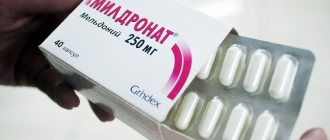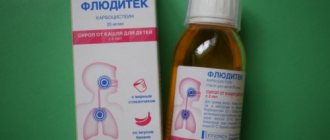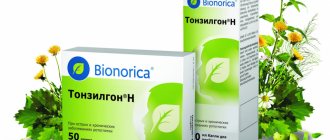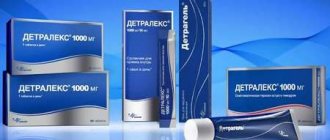Mildronate is a drug intended to improve metabolism in cells exposed to ischemia or hypoxia. The medicine improves energy metabolism in the tissues of the heart muscle and other organs. The drug is prescribed to patients with heart and vascular diseases, cerebrovascular accidents, retinopathy, as well as people engaged in heavy physical and mental work. In addition to the original product, which you can read about in detail here, modern pharmaceuticals offer various analogues of Mildronate. Analogues are drugs that are similar in their action and chemical composition.
pharmachologic effect
Manufacturer: Grindeks JSC, Latvia
Release form: capsules, ampoules
Active ingredient: meldonium dihydrate
Synonyms: Cardionate, Idrinol, Meldonium, Meldonium-SOLOpharm
Mildronate has several medicinal properties:
- Antihypoxic – improving the energy supply to the body’s cells, normalizing the process of oxygen consumption and delivery, increasing performance.
- Antianginal – normalization of coronary circulation, promotes blood flow to the myocardium.
- Cardioprotective – normalizes the functioning of the heart muscle. In acute ischemia, it prevents the development of the necrosis zone and speeds up the recovery process.
- Angioprotective – reducing the permeability of vascular walls and improving microcirculation.
- Tonic for the central nervous system - during withdrawal symptoms in patients with prolonged alcoholism.
Indications for use of Mildronate
Used to treat the following pathological conditions:
- Coronary heart disease (CHD), angina attacks, heart attacks, prolonged heart failure (HF), cardiomyopathy with hormonal imbalance - in complex regimens.
- In the joint treatment of non-acute stages of cerebral circulatory disorders (stroke, cerebral insufficiency).
- Decreased ability to work, mental and physical fatigue (also among athletes).
- Withdrawal symptoms in long-term alcoholism.
- Postoperative recovery.
- Ophthalmological diseases: acute disorder of microcirculation in the retina, thrombosis of the middle vein, hemorrhage in the retina, retinopathy of various origins.
Mildronate is not prescribed in cases of high intracranial pressure, weak venous outflow, pregnancy, lactation.
Why take Mildronate?
The drug is used only in the treatment of adults. Regardless of the dosage form, the indications for prescribing Mildronate are:
- Heart diseases caused by impaired coronary circulation (in complex therapy).
- Chronic heart failure and cardialgia.
- Reduced performance.
- Pathologies of peripheral arteries.
- The recovery period after surgery to restore the body.
- Encephalopathy.
- Stroke.
- Bronchial asthma and chronic obstructive pulmonary disease.
- II and III stages of alcoholism.
- Violations of the integrity of the vessels supplying blood to the tissues of the eye.
The use of Mildronate slows down the formation of necrotic areas and shortens the rehabilitation period after acute damage to cardiac muscle tissue.
During active training, meldonium restores the balance of oxygen in cells, prevents the accumulation of toxins, and helps restore energy reserves.
The drug is successfully used in sports in healthy people because:
- Increases adaptability to physical activity.
- Improves muscle nutrition, including the heart, and accelerates their recovery.
- Reduces fatigue.
- Increases the effect of sports.
Mildronate is not suitable for gaining muscle mass, but is used to prevent overwork.
Mildronate - instructions for use
Mildronate capsules are produced in doses of 250 mg and 500 mg of the active ingredient. The solution in ampoules is used for parabulbar administration in ophthalmic practice, for intravenous or intramuscular administration in acute cardiovascular disorders. The treatment regimen is selected with the doctor depending on the disease.
The duration of therapy ranges from 1 to 6 weeks. The prescribed dose is divided into 2–4 doses per day; it is advisable to avoid evening use due to the possible manifestation of a stimulating effect.
In the acute period of the disease (circulatory disorders, stroke), a short-term intravenous administration of Mildronate solution is prescribed, then it is recommended to switch to taking capsules. To increase working capacity, use capsules according to the scheme in the instructions for use. It is possible to repeat courses of Mildronate therapy 2-3 times a year.
Not used in patients under 18 years of age as safety has not been established.
How to take Mildronate - before or after meals?
The medication is taken orally, regardless of meals. Recommended until 5 p.m.
Description of the drug
The main active ingredient is meldonium. Produced in Latvia, Poland, Lithuania and Slovakia.
Presented in pharmacy chains in two forms:
- A transparent solution for injection, 1 ml of which contains 100 mg of the main substance.
- Gelatin capsules with 250 or 500 mg of meldonium dihydrate. Contents: white powder with a slight odor and sweetish taste.
The solution is sold in ampoules of 5 ml, a cardboard box contains 10 ampoules and instructions for use.
Meldonium is a synthetic drug with an effect similar to the precursor substance hydroxytrimethylaminobutyric acid, related to B vitamins.
The substance is able to improve metabolic processes and provide cells with energy.
Meldonium:
- Increases performance.
- Reduces the manifestations of mental, physical and mental stress.
- Increases the strength of heart contractions.
- Reduces the frequency of angina attacks.
- Increases the body's endurance during physical activity.
The medicine should be stored in a dry place at temperatures up to 25°C for no more than 4 years.
Analogues of Mildronate
Substitutes for Mildronate may differ in active substances, release form, restrictions on use, and cost. They have similar medicinal properties.
The table shows manufacturing countries and prices for Mildronate analogues
| Analogue | Price, in rubles | Manufacturer country |
| Mildronate | 237-640 | Latvia |
| Cardionate | 170-235 | Russia |
| Enerion | 364-955 | France |
| Mexidol | 270-780 | Russia |
| Riboxin | 50-115 | Russia, Belarus, China |
| Meldonium | 110-550 | Russia |
| Idrinol | 130-330 | Russia |
| Preductal | 810-2400 | France, Russia |
| Hypoxene | 640-690 | Russia |
| Elkar | 270-550 | Italy, Russia |
| Trimetazidine | 55-375 | Israel, Russia |
| Actovegin | 140-1550 | Japan |
| Noopept | 300-350 | Russia |
| Cytoflavin | 405-1050 | Russia |
| Panangin | 100-290 | Hungary, Russia |
| Carnitine | 133-1078 | Czech Republic, Russia |
| Perindopril | 130-610 | Hungary, Poland, Russia |
| Piracetam | 31-155 | Russia |
| Magnelis B6 | 265-680 | Russia |
| Mexicor | 110-790 | Russia |
| Nootropil | 250-330 | Russia |
| Picamilon | 90-146 | Russia |
| Sydnopharm | 200-235 | Bulgaria |
Hypoxene
Manufacturer: Olifen, Russia
Release form: capsules
Active ingredient: sodium polydihydroxyphenylene thiosulfonate
Hypoxene has antihypoxic and antioxidant properties. Mildronate's analogue is used to increase the body's ability to work and endurance; as part of joint therapy for injuries with significant blood loss, diseases of the respiratory system, chronic angina, heart failure, hypertension.
The dosage is selected depending on the patient’s weight.
Elkar
Manufacturer: Pik-Pharma, Russia
Release form: solution, ampoules, granules
Active ingredient: levocarnitine
Synonyms: Carnitine, Carnitene, Levocarnil
Elkar is a dietary supplement that improves metabolic processes in tissues.
It is used in complex treatment regimens for acute conditions of cerebral hypoxia, ischemic stroke, and circulatory disorders in the brain.
As a monotherapy, the Mildronate analogue is used for carnitine deficiency, coronary artery disease, cardiomyopathies, and during the postoperative recovery period. Used in pediatrics.
Consumed before meals with additional liquid.
The duration of therapy ranges from 1 week to 3 months as prescribed by the doctor.
Russian-made analogues
Analogues of the drug Mildronate, produced in Russia, are relatively inexpensive, provide a good therapeutic effect, contain the same active ingredient, and are used to increase energy metabolism and restore blood circulation in various diseases.
Melfort
Melfor is a Russian drug belonging to the group of cytoprotectors, used in the field of cardiology. The medicine is prescribed to patients for the complex treatment of angina pectoris, heart failure, and circulatory disorders of an acute or chronic nature. In addition, Melfor is used to increase working capacity and brain activity during the recovery period after heart attacks and surgical interventions.
The dosage regimen is determined by the doctor, taking into account the diagnosis and characteristics of the patient’s well-being. Due to the ability of the medicine to have a stimulating effect on the human nervous system, it is recommended to take it in the morning. A single dose is usually 0.5–1 g, the course of therapy is from 7 to 10 days.
The drug is prohibited for use by patients under 18 years of age, pregnant women and during breastfeeding. Taken with extreme caution for various pathologies of the kidneys and liver.
Medatern
The drug is an analogue of Mildronate and is available in the form of capsules with a gelatin shell. Meldonium in the product helps improve metabolic and energy exchange processes in the human body.
Medatern - Russian analogue of Meldronate
Instructions for use include the following indications for use of the medicine:
- decreased mental and physical performance;
- enduring heavy physical activity;
- IHD, accompanied by attacks of angina pectoris;
- myocardial infarction;
- hemorrhages in the retinal area of the eye;
- withdrawal syndrome in patients with alcohol dependence.
Contraindications include severe pathologies of the kidneys and liver, pregnancy, lactation, oncology in the brain, and impaired venous outflow. The dosage regimen is selected by the attending physician. Typically, a specialist prescribes 1–2 tablets for 10–14 days.
Important! In complex treatment with cardiac glycosides and antihypertensive drugs, Medatern enhances their effect.
Meldonium
The list of inexpensive Russian analogues includes Meldonium. The medicine is available in the form of ampoules, capsules and syrup. The main active ingredient of the drug is Meldonium dihydrate. Indications for the drug include decreased performance, conditions associated with coronary heart disease and heart failure. Meldonium is widely used in cases of impaired cerebral blood flow, among patients with chronic fatigue, during the recovery period after serious injuries and operations.
The dosage and duration of therapy with this medication is selected by the doctor individually for each patient. Among the contraindications are oncological formations in the brain, impaired blood flow, the period of pregnancy and breastfeeding, age under 18 years, intolerance to the components of the drug.
Side effects include attacks of tachycardia, allergic rashes on the body, digestive disorders, emotional instability, and fluctuations in blood pressure.
Cardionate
Cardionate is a cardioprotective agent based on meldonium, used to correct cardiac activity in various heart pathologies, restore blood circulation in the tissues of the brain and other parts of the body. The product is available in capsules and injections. The active component of the drug is quickly absorbed into the blood, has a positive effect on the body's metabolic processes, and helps increase energy synthesis.
The dosage is selected depending on the patient’s diagnosis and concomitant pathologies. Typically, treatment is carried out according to the scheme: 1 - 2 ampoules of 5 ml for 10 days or oral administration of capsules of 0.5 - 1 g for 1 - 2 weeks.
Cardionate – a product based on meldonium
The following conditions may be grounds for refusing treatment with this remedy:
- individual intolerance to the main active component of the product and its excipients;
- tumors in the brain area, causing increased intracranial pressure and impaired blood flow;
- period of bearing a child;
- breast-feeding.
Side effects include abnormal heart rate, psychosomatic disorders, insomnia, irritability, and allergic rashes on the body.
Mildronate or Cardionate – which is better?
Manufacturer: Nizhpharm, Russia
Release form: capsules, ampoules
Active ingredient: meldonium dihydrate
Synonyms: Mildronate, Idrinol, Meldonium
Cardionate is a domestic analogue and substitute for Mildronate. Capsules are available in a dose of 250 mg of the medicinal substance. The analogue has medicinal properties similar to Mildronate: normalizes blood circulation in the brain, cardioprotective, antianginal, reduces tissue hypoxia, adaptogenic.
Used to treat the following diseases:
- in a complex setting for ischemic heart disease, angina pectoris, heart attack, heart failure, stroke, cerebral circulatory disorders;
- physical and mental fatigue;
- to relieve withdrawal symptoms during long-term alcoholism;
- circulatory disorders and bleeding into the retina.
The dose and method of administration of the analogue are selected by the doctor depending on the stage and nature of the disease.
Which medication is better depends on the individual, since they have the same active ingredient. Mildronate's analogue is cheaper and differs in that it does not have a dosage of 500 mg.
Mildronate or Enerion - which is better?
Manufacturer: Servier, France
Release form: tablets
Active ingredient: sulbutiamine
Enerion is an imported analogue of Mildronate in tablets. It is produced in one therapeutic dosage, the price depends on the amount of medication in the package - 20 or 60 tablets.
The active substance of the analogue is synthetic, similar in structure to vitamin B1. Thanks to the modified formula, it is well absorbed by the body.
While taking the analogue, coordination of movements is normalized, endurance of physical activity increases, and the resistance of the cerebral cortex to hypoxia increases. The Mildronate analogue has proven itself effectively in the symptomatic treatment of functional asthenia.
Enerion is approved for use only by adults. The dose is taken 2 times per day in the morning and lunchtime. The duration of therapy with the analogue should not exceed a month.
It is difficult to select the best drug, since they differ in composition, and the analogue is used to treat one disorder. You should rely on the symptoms of the disease and select the appropriate medication.
Indications
All dosage forms (capsules, tablets, injections) of Mildronate are intended for the treatment of adult patients. A doctor may prescribe the drug in the following cases:
- IHD (in combination with other drugs and treatment methods);
- peripheral arterial disease;
- reduced performance;
- encephalopathy;
- physical overload (including in sports);
- postoperative period (to speed up the recovery of the body);
- chronic heart failure;
- cardialgia (pain in the left side of the chest) caused by dishormonal myocardiopathy;
- bronchial asthma;
- COPD;
- alcohol withdrawal (as an addition to specific therapy);
- stroke.
The drug may be prescribed for reduced performance
Additional indications for the use of drug injections:
- hemorrhage into the vitreous cavity of the eye (hemophthalmos);
- hemorrhage in the retina of the eye;
- thrombosis and occlusion of the central retinal vein or its branches;
- retinopathy of various origins (for example, hemorrhagic or diabetic).
Mildronate or Mexidol
Manufacturer: ZiO-Zdorovye, Russia
Release form: tablets, ampoules
Active ingredient: ethylmethylhydroxypyridine succinate
Synonyms: Mexifin, Mexiprim, Neurox, Mexicor
Mildronate substitute in Mexidol tablets has the following properties:
- antioxidant;
- antihypoxic;
- nootropic;
- anxiolytic (reduces feelings of fear);
- membrane-protective;
- anticonvulsant;
- improves metabolic processes and blood circulation in the brain;
- increases the body's resistance to stress and oxygen-dependent factors (ischemia, hypoxia).
Mexidol is used to treat:
- vegetative-vascular dystonia (VSD);
- brain pathologies associated with atherosclerotic changes in blood vessels;
- encephalopathy of various origins;
- neuroses, neurasthenia with anxiety;
- to stop withdrawal symptoms in case of poisoning with antipsychotics;
- acute stage of peritonitis, pancreatitis (not antibiotic) - in a complex treatment regimen;
- uncomplicated traumatic brain injuries and consequences;
- IHD in joint treatment regimens;
- mild cognitive impairment;
- asthenia.
The duration of treatment, depending on the disease, ranges from 1 week to 2 months. Tablets are taken 1-2 pieces 3 times a day.
Compared to Mildronate, the Mexidol analogue still has anti-anxiety properties. Reviews from patients indicate that the drug effectively copes with neurosis-like conditions.
Patient reviews
Anna, Kharkov “I have been using Mildronate for several years in a row, but now it is quite difficult to find it on the shelves of pharmacies, so I had to switch to a similar product. The doctor advised me an inexpensive but effective remedy, Meldonium. The composition of these medications is the same, so I purchased the drug without any doubt. I have only positive impressions of its action; I completed a course of treatment and was satisfied with the effect. I want to say that this product is no worse than the original.”
Alena, Khabarovsk “I was diagnosed with vegetative-vascular dystonia back in my student years. Since then I have suffered from weakness, headaches, and poor sleep. After another visit to the doctor, I was prescribed Metazidine. The doctor said that this remedy increases metabolic processes, increases vascular tone, and increases blood circulation. After finishing the course, I really felt an improvement, the headaches and weakness went away. Even homework is much easier to do.”
Anton, Yaroslavl “After going to the hospital about nagging pain in the heart area, it turned out that I had functional heart failure. In addition to chest discomfort, I suffer from low blood pressure and frequent dizziness. The doctor prescribed complex treatment using cardiac medications. One of them was Riboxin. After completing the course, my health improved, my blood pressure normalized, and my headaches went away. The doctor said that the treatment would have to be repeated annually.”
Mildronate or Riboxin - which is better for the heart
Manufacturer: Biosintez, Russia
Release form: tablets, ampoules
Active ingredient: inosine
Riboxin is a cheap analogue of Mildronate in tablets, produced in Russia. The composition is different, but the pharmacological effect is similar: it normalizes the processes of oxygen and glucose metabolism in body tissues, reduces hypoxia, reduces cardiac arrhythmia, normalizes coronary circulation, and stimulates the regeneration of myocardial tissue.
The Riboxin analogue is used to treat:
- IHD, heart defects, dystrophic changes in the myocardium, after a heart attack - in complex therapy;
- liver diseases: cirrhosis, hepatitis, fatty degeneration;
- prevention of leukopenia after radiation exposure;
- during surgery on an isolated kidney as pharmaceutical protection.
The drug is not used in acute cases of cardiac muscle dysfunction. The analogue is used to maintain the myocardium and prevent the development of emergency pathological conditions. In sports, Riboxin is also used to improve metabolic processes and endurance of the body.
Tablets are taken before meals for 1–3 months.
Both drugs are used for diseases of the cardiovascular system; which drug is better in each case, you should consult a doctor, as they have contraindications.
Belarusian substitutes
Mildronate analogues produced in Belarus are produced in ampoules, tablets, and capsules. These drugs are distinguished by their simplicity of composition, but in terms of therapeutic effect they are not inferior to their more expensive analogues.
Mildrocard
The drug Mildrocard has angioprotective, antihypoxic, cytoprotective effects in various pathologies of the heart and blood vessels. The product enhances energy exchange, nourishes the affected tissues with oxygen and other vital elements.
The range of applications of Mildrocard is very wide. These include decreased performance, loss of strength after heavy physical exertion, including among athletes, disturbances in myocardial function, coronary artery disease, and heart failure. Besides. The drug is indicated for withdrawal symptoms in people with alcohol dependence, retinopathy, retinal hemorrhage and other conditions.
Tablets and injections are used according to a scheme selected by the doctor, individually for each patient. The standard regimen involves taking 1 tablet three times a day for 7–14 days or 5 ml of the drug intravenously 3 times a day for a week.
Mildrokat is a Belarusian-made product that contains meldonium.
Contraindications:
- allergy to the components of the product;
- serious diseases of the central nervous system;
- increased intracranial pressure;
- age up to 18 years.
Important! During pregnancy, Mildrocard may be taken as prescribed by a doctor in cases where the benefit outweighs the harm.
Riboxin
Riboxin has a positive effect on cellular energy metabolism, reduces ischemia and tissue hypoxia in diseases of the heart and blood vessels. The drug is intended to restore heart rhythm, coronary circulation, and stimulates increased energy exchange in myocardial tissues.
The medicine is used in complex therapy of coronary artery disease, diseases of the organs of vision, myocarditis, cardiomyopathy, arrhythmias, and during the recovery period after a heart attack.
The main contraindication of Riboxin is individual intolerance to the components of the drug. The product should not be used by patients suffering from gout and uric acid metabolism disorders. The drug is prescribed with great caution to patients undergoing chemotherapy treatment.
The most common complication when taking Riboxin is the development of a local allergic reaction. It manifests itself in the form of rashes and skin itching. Using the medication for too long can cause severe inflammation in the joints.
Mildronate or Meldonium – which is better?
Manufacturer: Pharmstandard, Russia
Release form: capsules, ampoules
Active ingredient: meldonium dihydrate
Synonyms: Mildronate, Cardionate, Idrinol
Meldonium is a domestic analogue of Mildronate in capsules and solution for injection. It is produced in the form of capsules in dosages of 250 mg and 500 mg. The drug is similar in active substance and has the same medicinal properties.
An analogue of Mildronate is prescribed for the treatment of the following pathologies:
- IHD, angina pectoris, chronic heart failure, heart attack - complex therapy;
- cerebral insufficiency, stroke;
- overwork of the body, postoperative period;
- parabulous administration – for ophthalmological pathologies.
The difference between Meldonium and Mildronate is the price.
Analogs from other manufacturers
Among foreign manufacturers, you can choose Mildronate substitutes that have a similar effect and composition.
Vazonat
The medicine from the Latvian company Vazonat contains meldonium dihydrate and is available in the form of capsules for oral administration and ampoules for injections.
The product has the following therapeutic effects:
- improves blood circulation in areas affected by ischemia and hypoxia;
- stimulates and protects blood vessels;
- improves the supply of oxygen to body tissues;
- prevents the formation of blood clots.
Prescribed for any pathologies accompanied by circulatory disorders. These diseases include encephalopathy, atherosclerosis, coronary heart disease, retinopathy, hearing and vision impairment.
The medicine is strictly prohibited during the acute period of myocardial infarction, during hemorrhagic stroke, during pregnancy, for children under 18 years of age, and with individual intolerance to the components of the drug.
Vasonate is widely used for ischemia and hypoxia
Side effects include local allergic manifestations and disorders of the central nervous system - dizziness, headaches, irritability, insomnia.
Metazidine
Metazidine is a German drug that is produced in tablet form. The drug has a cardioprotective and antiangial effect, stabilizes the body's metabolic processes, thereby improving the supply of oxygen and nutrients to all organs and tissues.
Metazidine is used when symptoms such as tinnitus, dizziness, and rapid heartbeat appear. The drug is widely used as a complex therapy for coronary heart disease and heart failure.
Metazidine is well tolerated by patients. The standard dosage regimen is 1-2 tablets three times a day for 7-10 days. The medicine causes side effects extremely rarely. Among them are skin rashes, itching, urticaria, and, less commonly, nausea and abdominal pain.
Contraindications include pregnancy, breastfeeding, and intolerance to the components of the product.
Selecting analogs of Mildronate is not difficult, because many countries produce medicines containing meldonium that have a similar therapeutic effect. All of them have predominantly positive reviews from patients. Despite the detailed instructions for the drugs and their availability, before taking each drug it is recommended to undergo a full examination and consult a doctor.
Mildronate or Idrinol
Manufacturer: Sotex, Russia
Release form: capsules, ampoules
Active ingredient: meldonium dihydrate
Synonyms: Mildronate, Cardionate, Meldonium
The Russian analogue Idrinol consists of the same active ingredient as Mildronate - meldonium. It has identical pharmacological actions and indications for use. An analogue of Mildronate is produced in ampoules and capsules in a dosage of 250 mg.
According to reviews from doctors and patients who took the analogue, it is not inferior in effectiveness to the therapy of the original medication. It has a more affordable price, which allows it to be used by different segments of the population.
Contraindications and side effects
It is prohibited to use Mildronate for:
- Individual intolerance to meldonium or any of the auxiliary components.
- Increased intracranial pressure, caused, among other things, by a tumor and impaired venous outflow.
Undesirable effects from taking the drug may appear in the form of:
- Allergic manifestations - itching, rashes, redness or swelling.
- Rapid heartbeat.
- Reactions from the digestive system - nausea, vomiting, heartburn, belching.
- Excessive stimulation of the nervous system.
In general, Mildronate is a low-toxic drug that does not cause life-threatening conditions. However, Mildronate is not used in pediatrics. Also, the drug is not prescribed during pregnancy and breastfeeding.
Mildronate or Preductal
Manufacturer: Servier, France, Russia
Release form: tablets, capsules
Active ingredient: trimetazidine
Synonyms: Triducard MV, Predizin, Rimekor, Deprenorm MV, Trimectal MV
Preductal is an analogue of the drug Mildronate with another active ingredient. Available in two doses: MV (35 mg) and slow-release OD (80 mg). An analogue is produced in packages of 30 and 60 pieces.
The analogue Preductal has an antianginal effect and normalizes blood supply to the heart muscle. Mildronate can be replaced in case of coronary artery disease, using both monotherapy and complex, long-term prevention of angina attacks. It is also used to treat dizziness, tinnitus due to vestibular disorders of ischemic origin.
Preductal is taken with meals twice a day. Preductal OD with gradual release is taken once a day in the morning. The effectiveness of analog therapy can be assessed after 3 months.
The medications considered have similar therapeutic effects, some differ in composition, have a wider or narrower range of prescriptions and contraindications. Substitutes for the active substance - generics - are cheaper. This category of drugs is dispensed upon presentation of a prescription.







